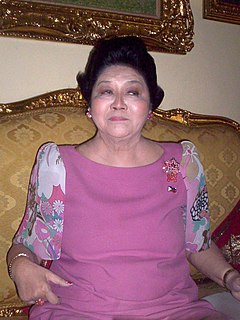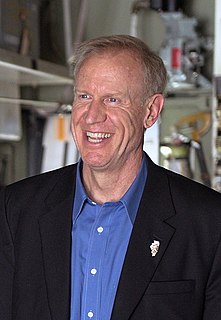A Quote by Noam Chomsky
Because they don't teach the truth about the world, schools have to rely on beating students over the head with propaganda about democracy. If schools were, in reality, democratic, there would be no need to bombard students with platitudes about democracy. They would simply act and behave democratically, and we know this does not happen. The more there is a need to talk about the ideals of democracy, the less democratic the system usually is.
Related Quotes
If you have reservations about the system and want to change it, the democratic argument goes, do so within the system: put yourself forward as a candidate for political office, subject yourself to the scrutiny and the vote of fellow citizens. Democracy does not allow for politics outside the democratic system. In this sense, democracy is totalitarian.
I think some people have blind faith in American institutions without knowing a whole lot about them and think they will stand up to Donald Trump and are indestructible. I actually think democracy is not a definable and achievable state. Any country is either becoming more democratic or less democratic. I think the United States hasn't tended to its journey toward democracy in a long time. It's been becoming less democratic, and right now it's in danger of becoming drastically less democratic.
There's one other interesting thing about Western democracy. It didn't arrive at the end point that Karl Marx thought it would that wealth would become more and more concentrated in the hands of the few, that eventually the few would be killed by the many who were deprived, and that a different kind of government would then develop. What happened in Western democracy is that we began to understand that a democratic system can't work if half of the people are starving and the other half are dieting.
The moral case is, people say, "Oh they're not ready for democracy," but that's something someone who lives in a democracy would say about someone who doesn't live in a democracy. Well, if democracy is the highest form of human potential, then it can't be true for us and not for them. But, the practical case is democracies don't invade their neighbors. Democracies don't traffic in child soldiers. Democracies don't harbor terrorists as a state policy. So there's a reason to have more democratic states.
When I was in Wuhan, I went to the art school, which was one of the most important art schools in China, an enormous art school. One of the things that I saw is that the schools are very big and there are so many students. It is very difficult to me to teach creative activity to great numbers of people, because I think you need personal contact with students, you need to speak individually, you need individual contact between teachers and students, you need continuity. To me this is a problem in mass education in every society now.
All the more reason we need to stand up for our democracy now. If we're going to solve the crises that are barreling down on us, we need democracy, and our democracy needs to start with an open and inclusive debate. That doesn't mean 20 candidates. There are four candidates who are on the ballot for just about every voter in America.





































